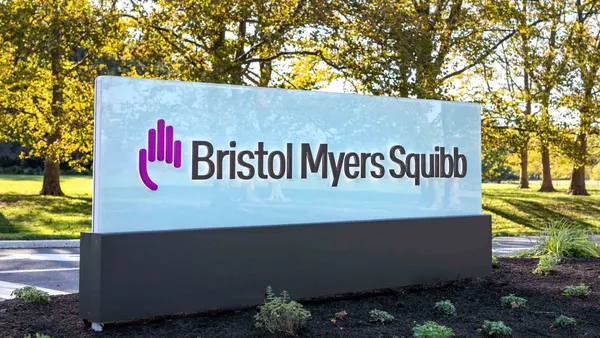Dive Brief:
- An experimental gene therapy from Pfizer succeeded in a Phase 3 study of people with hemophilia A, overcoming safety concerns that had put the trial on hold for almost a year.
- The treatment, giroctocogene fitelparvovec, is a one-time infusion designed to help patients produce a protein called Factor VIII that’s needed for normal blood clotting. Currently, people with hemophilia A use infusions of Factor VIII to prevent bleeding episodes.
- In the AFFINE study, researchers followed 75 patients for at least 15 months after they received Pfizer’s therapy. Study participants had fewer bleeding episodes and higher levels of Factor VIII, compared with standard prophylactic treatment before the infusion, Pfizer said Wednesday. Only one treated patient returned to prophylactic infusions.
Dive Insight:
The study results offer hope for patients who wish to avoid the burden of frequent Factor VIII injections. But some questions about the treatment remain.
As with other gene therapies that hold out the promise of one-time solution for a condition, it’s unclear how long the effects of Pfizer’s option will last and whether it can offer a permanent reduction in the need for Factor VIII injections. The New York-based drugmaker ultimately plans to continue following patients for as long as 15 years.
Regulators will likely also zero in on the almost 50% of patients in the study whose Factor VIII levels rose to 150% or more. Concerns about the potential for dangerous blood clots among those patients prompted the Food and Drug Administration to put a hold on the trial in November 2021.
Pfizer ultimately resolved the FDA’s concerns and restarted the trial in 2022 with an adjusted protocol. On Wednesday, Pfizer said the elevated levels of Factor VIII were transient and had no effect on efficacy and safety results. The company plans to consult with regulators in coming months on the next steps for the treatment.
Developers of hemophilia gene therapies have had a rocky road with the FDA in general. The agency surprised the industry in 2020 by rejecting BioMarin’s treatment for the disorder and asking for more data. BioMarin eventually won approval for the therapy but sales have disappointed investors.
Pfizer developed its hemophilia A treatment with Sangamo Therapeutics. The company’s other gene therapy work has produced mixed results. It won approval for a gene therapy to treat hemophilia B in April, but reported a research failure in Duchenne muscular dystrophy in June. Pfizer sold off its early gene therapy programs to AstraZeneca in 2023.













